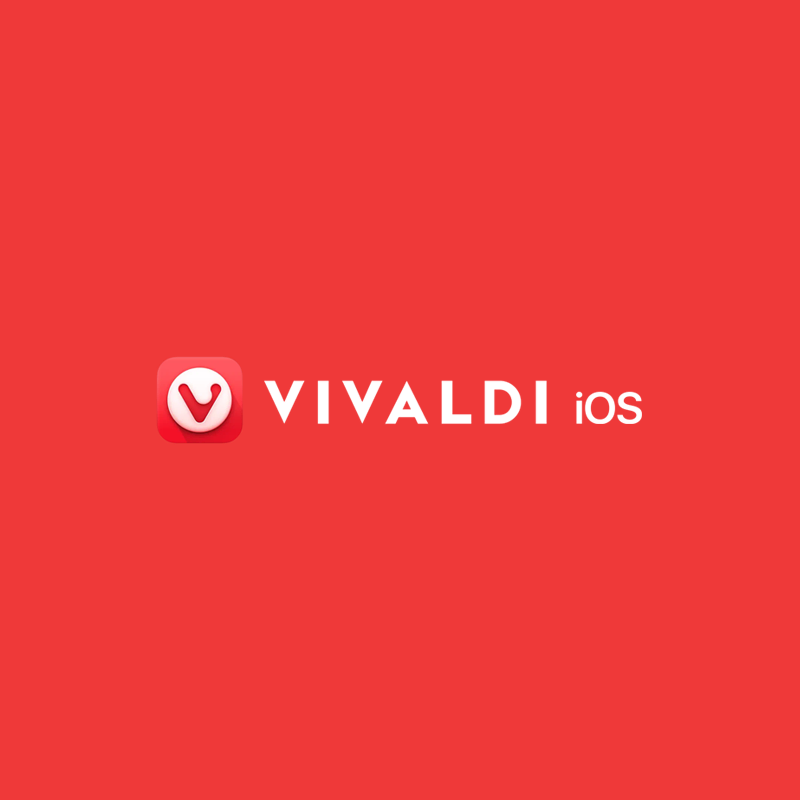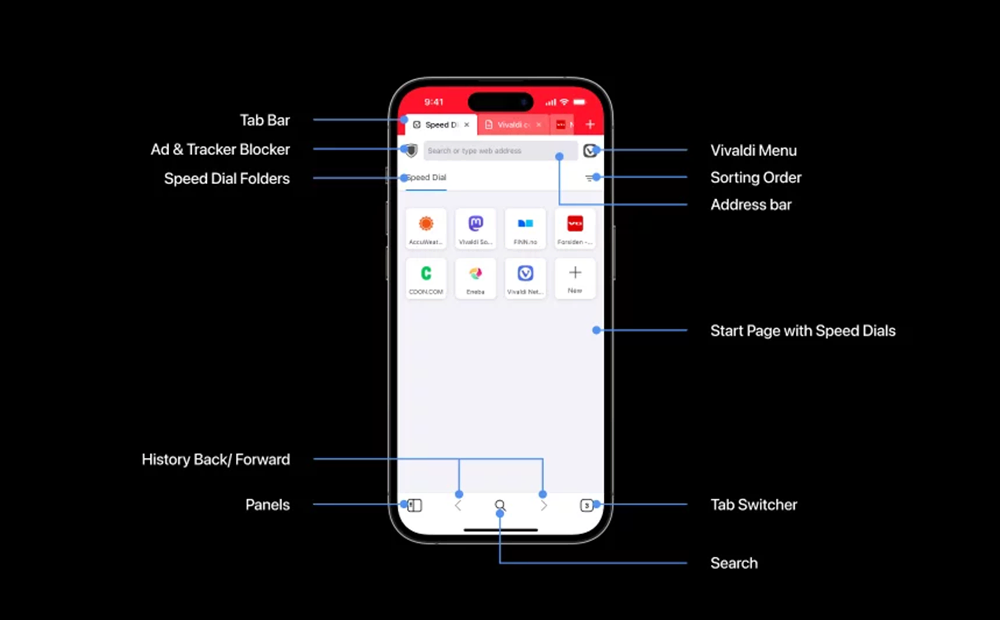
Finally, after the long wait. But, what different does it makes?
Vivaldi is a privacy-focused web browser. But besides boasting a minimalistic user interface with basic icons and fonts, among others, Vivaldi showcases flexibility, allowing users to customize the browsers' appearance, color, theme, address bar, tab positioning, start pages, and more.
According to CEO Jon von Tetzchner, Vivaldi's unique customizability is how the browser caters to experienced users.
And this time, Vivaldi is bringing that experience to iOS.
While Vivaldi has been made available to MacOS computers, it's only this time that the browser is making its presence on iOS.
The long wait is because Apple demands apps to do things Apple's way. Because of that, Vivaldi was kind of restricted.
Your favorite #browser is ready for download on #iPhone and #iPad.
It’s with its built-in tools – Desktop-style tabs, Speed Dials, Panels, Notes, Reading List & Tracker and Ad Blocker.#VivaldiOniOS
Discover more: https://t.co/3TDecVQ0EO— Vivaldi (@vivaldibrowser) September 28, 2023
The flexibility of Vivaldi is the main thing that makes it stand out among the many browsers that have failed to understand how every user's experience isn't the same.
For instance, Users may prefer having their tab bar at the top of the browser. Or, if they tend to use their phone with one hand, they may want that tab bar at the bottom for easier access. Vivaldi allows for such customizations.
"Whether you’re a casual or an advanced user, you get the flexibility and versatility to browse the web your way with Vivaldi’s powerful features and unmatched levels of personalization," said Vivaldi in a blog post.
And here, the Vivaldi browser on iOS has features like:
- Desktop-style tabs (with an easy-to-use tab switcher).
- Speed Dials (easily access to favorite sites).
- Panels (quick access to tools such as Bookmarks, History, and Notes).
- Notes (for notes, to-dos, and inspiration).
- Reading List (lets users add web pages for later reading).
- Ad and Tracker Blocker.
- Sync between desktop and mobile.
- Customizable search.
- Custom app icons and themes.
- Vivaldi widget to the home screen (for easy opening of private tabs, quick web searches, and QR code scanning).

While the Vivaldi browser on iOS introduces lots of features for flexibility, it's worth noting that just like any browser out there, Apple's WebKit is lurking behind the scene.
WebKit is the open-source web browser engine developed by Apple. And on iOS, all browsers or apps that can render the web, are required to use WebKit.
While WebKit is known for its efficiency and performance, and that it also plays a pivotal role in rendering web content and ensuring a seamless browsing experience, WebKit is a constraint to some browsers due to how Apple works.
The reason web browsers on iOS require WebKit primarily revolves around Apple's policies and restrictions on the platform.
By requiring browser to use WebKit, Apple can retain its control on the ecosystem.
And by mandating WebKit, Apple can maintain a continuous high level of control over the browsers' performance and security features.
Among other reasons, Apple's decision to require WebKit in iOS browsers is primarily driven by its desire to maintain control over the user experience, performance, security, and privacy within their ecosystem.
Vivaldi was notably absent from Apple mobile devices, due to reasons that include the restrictions that prevented Vivaldi from using the same code to create a browser for iOS.
This time however, things are changing a bit.
The release of the iOS/iPadOS versions of Vivaldi comes just months before the implementation of Europe’s Digital Markets Act (DMA), which is meant to give alternative browsers much more freedom.
The DMA is created to prevent vendors, like Apple, from forcing browser makers to use their own browser engines, something Vivaldi CEO Jon von Tetzchner has long protested against.
"At this point, all iOS browsers must use WebKit rendering engine," said Priyonto M Rahman, an iOS developer at Vivaldi.
But the company hopes that in the future, they could have a way to properly render Vivaldi without WebKit.
He noted that on desktop, the differentiating factor between Chrome and Vivaldi was mostly in the UI.
"We are adding Vivaldi-specific features on top of Chromium," he said.
"Chrome has their own rendering engine (blink) for all other platforms except iOS. For iOS they still use WebKit because of Apple's policy."
Regardless, users of the desktop version of the Vivaldi browser should instantly become accustomed carried to the Vivaldi browser on iOS, because the features are practically the same.
"We are very excited to bring Vivaldi to iOS. Now you can experience browsing that is powerful, personal, and private," said Vivaldi co-founder and CEO Jon von Tetzchner.
